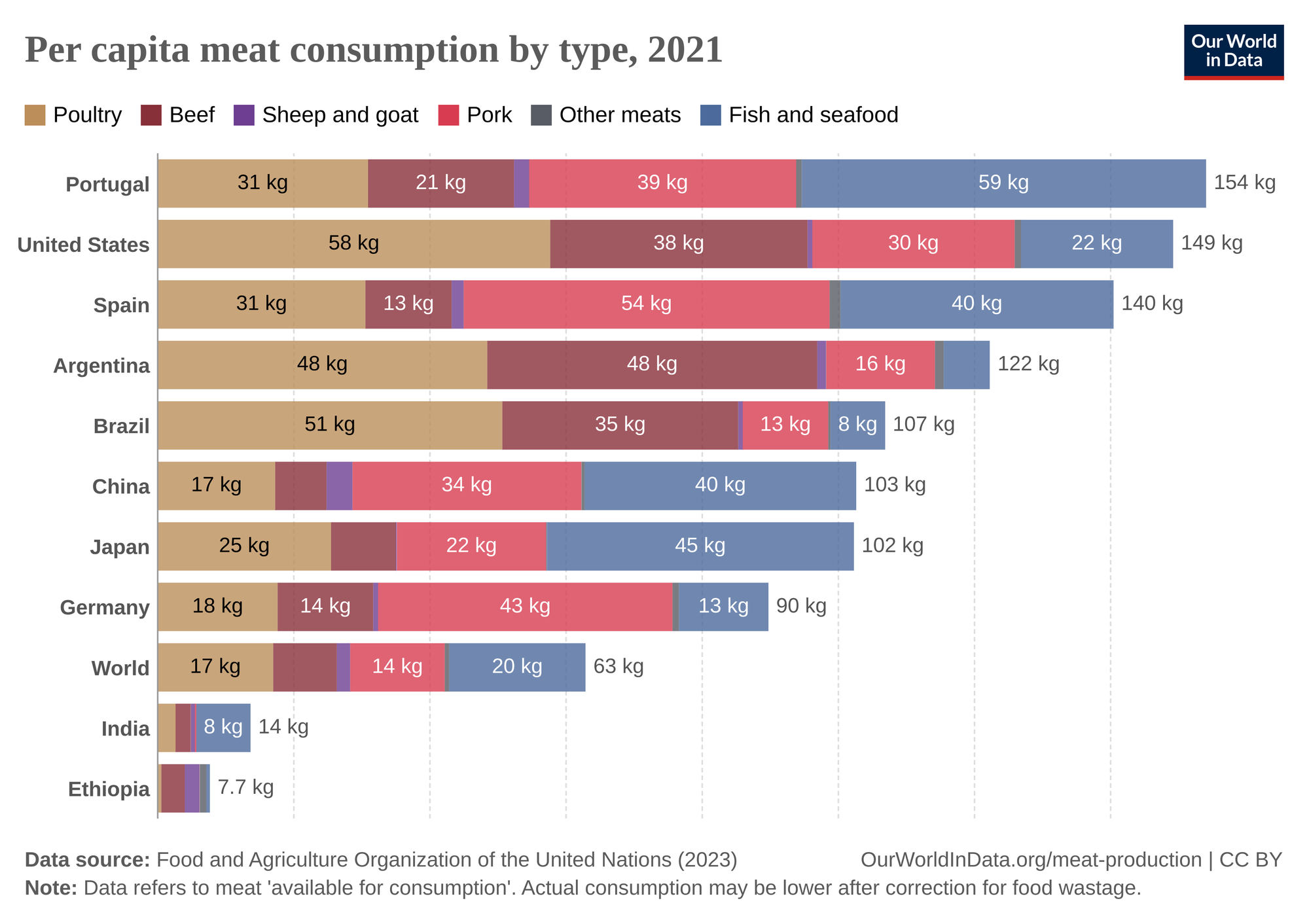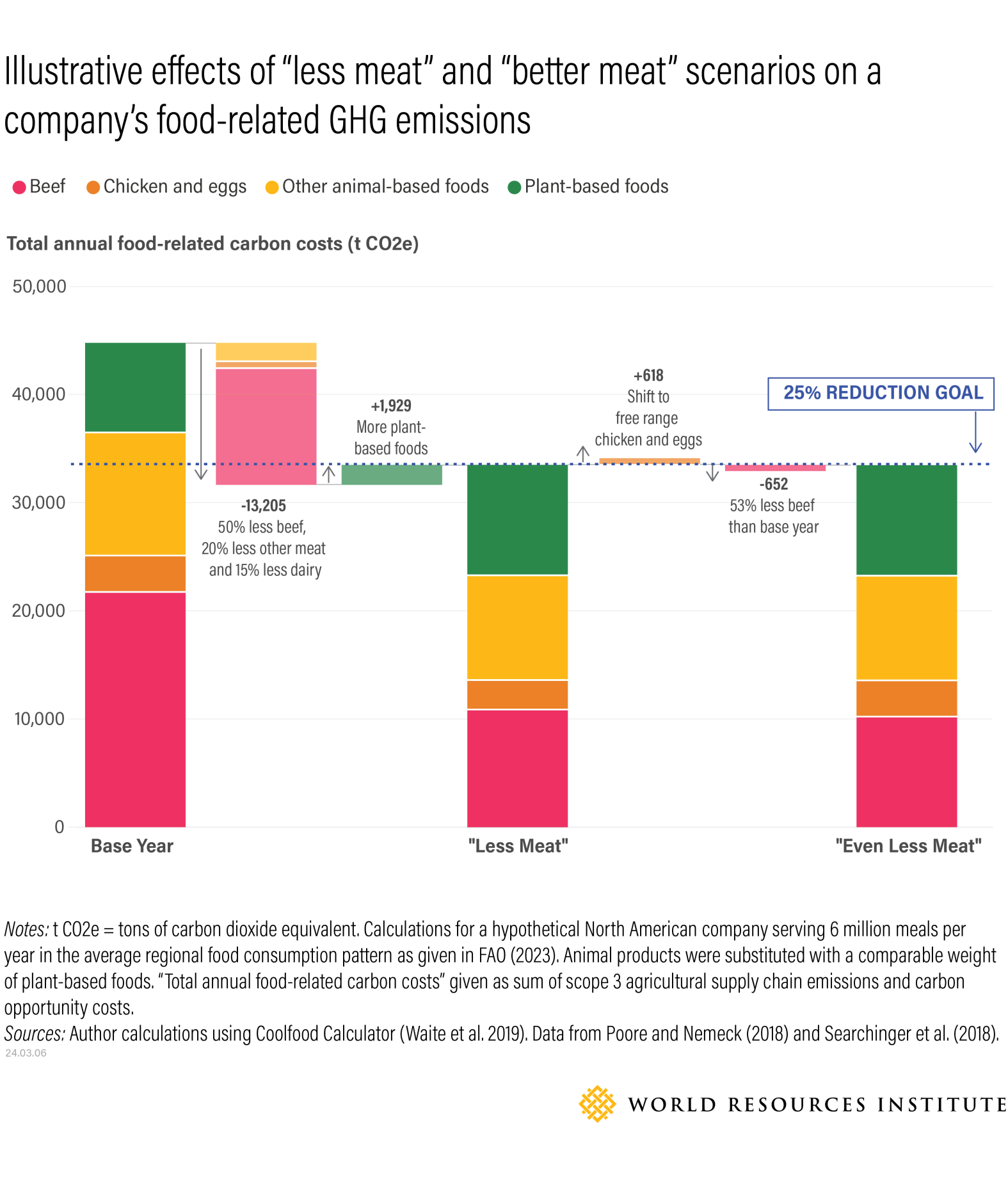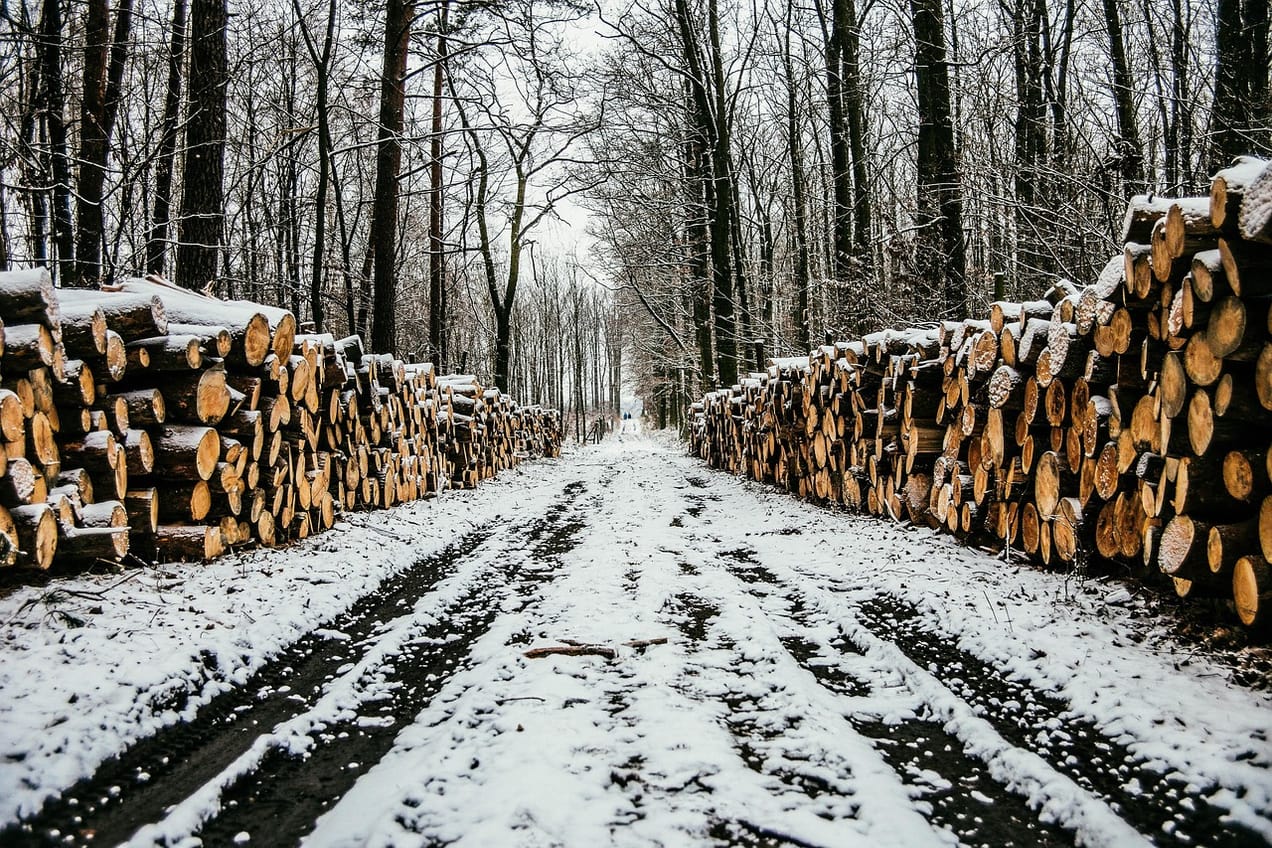
Can we have better meat?
What is better meat ? There is a lot of discussion about how we need to eat less meat, for all sorts of reasons, not just climate change. But, another part of the solution is eating 'better meat'.
There is a lot of discussion about how we need to eat less meat, for all sorts of reasons, not just climate change. But, another part of the solution is eating 'better meat'. But what is 'better meat'? And is it better for the environment?
Average meat consumption varies across countries. Here is the data from 2021:

We often hear about the negative environmental impacts of meat consumption from the high greenhouse gas emissions, to the high water usage, to the large land usage, to the overuse of antibiotics to deforestation. There has been a shift towards increasing the proportion of plant-based foods in food company portfolios to shift diets to be less meat heavy in high meat consumption countries in response to those environmental concerns.
However, in addition to sourcing less meat, there has also been a strategy of trying to source 'better meat'.
But what does 'better meat' actually mean?
An interesting report that caught our eye from the World Resources Institute posed the question "is there such a thing as 'better' meat?"

'Better meat' can encompass a number of things. For example, cellular agriculture or cultured meat is a growing industry focused on growing meat in the lab (well large bioreactors for scale).
And if you think about solutions at scale, 'better meat' is often linked with alternative agricultural production systems (compare with conventional industrialised meat production).
The report includes comparisons of the environmental performance of different animal production systems.
Surprisingly they found that a number of production systems associated with 'better meat' often had higher environmental impacts per kilogram of protein, even though overall animal welfare improved. That is worth repeating - better meat has tradeoffs.
Their conclusion was that there needs to be a combination of increasing the proportional sourcing of 'better meat' whilst reducing the overall absolute amount of meat too. In other words moving from “less meat” to “even less but better meat.”
A study by researchers from the University of Adelaide and the University of Zurich found that "countries with dietary patterns that are higher in meat have greater rates of obesity and overweight and higher mean BMI." So a reduction in meat consumption could have some health benefits.
Plus, there are significant health risks with being obese. There are links to cardiovascular disease, type 2 diabetes, cancer, dementia, psychological distress and infertility.
The report also included six recommendations for companies' sourcing stratetgies to help them achieve their climate and nature goals, maximising the benefits and minimising potential trade-offs.

There will often need to be trade-offs in transitioning to a more sustainable existence. It is also an illustration of a systems thinking approach which regular readers of The Sustainable Investor will recognise in much of our writing. Decarbonisation is important but we shouldn't be myopic about it and forget the other important considerations.
There are potentially innovative ways in which we can feed the world in a more sustainable manner by changing how we utilise resources within the system.
👉🏾 read the full blog (Feed animals differently = feed an extra billion+) here
This article featured in What Caught Our Eye, a weekly email featuring stories we found particularly interesting during the week and why. We also give our lateral thought on each one. What Caught our Eye is available to read in full by members.
If you are not a member yet, you can read What Caught Our Eye when it comes out direct in your email inbox plus all of our blogs in full...

Click this link to register 👉🏾 https://www.thesustainableinvestor.org.uk/register/

Please read: important legal stuff.

